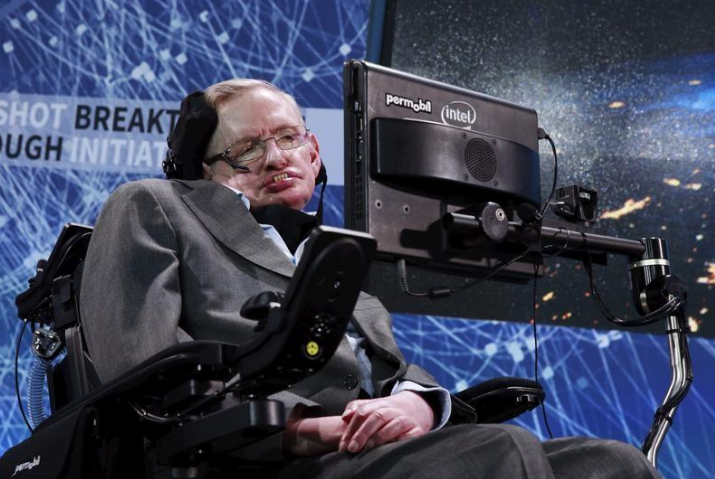Stephen Hawking, leading scientist and atheist, dies aged 76
Stephen Hawking, the peerless scientist and leading atheist whose curiosity about the universe shaped our understanding of modern cosmology, has died aged 76.
Hawking's family released a statement in the early hours of this morning confirming his death at his home in Cambridge.
In it, his children, Lucy, Robert and Tim, said: 'We are deeply saddened that our beloved father passed away today. He was a great scientist and an extraordinary man whose work and legacy will live on for many years. His courage and persistence with his brilliance and humour inspired people across the world.

'He once said: "It would not be much of a universe if it wasn't home to the people you love." We will miss him for ever.'
Hawking was famed for his work with black holes and relativity, and wrote several popular science books including, most famously, A Brief History of Time, originally published in 1988.
In his 2010 book, Grand Design, Hawking declared that God was not needed for the start of the universe, and in an interview with the Guardian a year later, he dismissed religion.
'I regard the brain as a computer which will stop working when its components fail,' he said. 'There is no heaven or afterlife for broken-down computers; that is a fairy story for people afraid of the dark.'
He also said: 'I'm not afraid of death, but I'm in no hurry to die. I have so much I want to do first.'
Hawking was diagnosed with motor neurone disease in 1963 at the age of 21, when doctors expected him to live for only two more years. But he confounded expectations as his form of the disease progressed more slowly than others.
The early diagnosis of the terminal disease, and witnessing the death from leukaemia of a boy he knew in hospital, made Hawking want to live, not die. He once said: 'Although there was a cloud hanging over my future, I found, to my surprise, that I was enjoying life in the present more than before. I began to make progress with my research.'
And he said of the life's work ahead of him: 'My goal is simple. It is a complete understanding of the universe, why it is as it is and why it exists at all.'
Hawking began to use crutches in the 1960s, but was eventually forced to use his famous wheelchair. He was largely unable to speak except through a voice synthesiser.
A book of condolence is due to be opened at Gonville and Caius College in Cambridge, where Prof Hawking was a fellow.

Hawking appeared in popular TV shows including The Simpsons, Red Dwarf and The Big Bang Theory and was portrayed in both TV and film, most recently by Oscar winner Eddie Redmayne in The Theory of Everything, which charted his rise to fame and relationship with his first wife, Jane.
Redmayne was among many around the world who paid tribute to him today, saying: 'We have lost a truly beautiful mind, an astonishing scientist and the funniest man I have ever had the pleasure to meet. My love and thoughts are with his extraordinary family.'
Sir Tim Berners-Lee, the founder of the world wide web, was one of the first to respond to news of his death, saying on Twitter: 'We have lost a colossal mind and a wonderful spirit.'
We have lost a colossal mind and a wonderful spirit. Rest in peace, Stephen Hawking. https://t.co/ectv7r4UIm
— Tim Berners-Lee (@timberners_lee) March 14, 2018
Nasa tweeted, saying that 'his theories unlocked the universe of possibilities that we & the world are exploring. May you keep flying like superman in microgravity'.
Cambridge University's vice-chancellor, Professor Stephen Toope, said Hawking was an inspiration to millions. 'Professor Hawking was a unique individual who will be remembered with warmth and affection not only in Cambridge but all over the world,' he said.
'His exceptional contributions to scientific knowledge and the popularisation of science and mathematics have left an indelible legacy. His character was an inspiration to millions.'
And Nicola Sturgeon, the Scottish first minister, also tweeted, saying, 'You changed the way we see the universe'.











